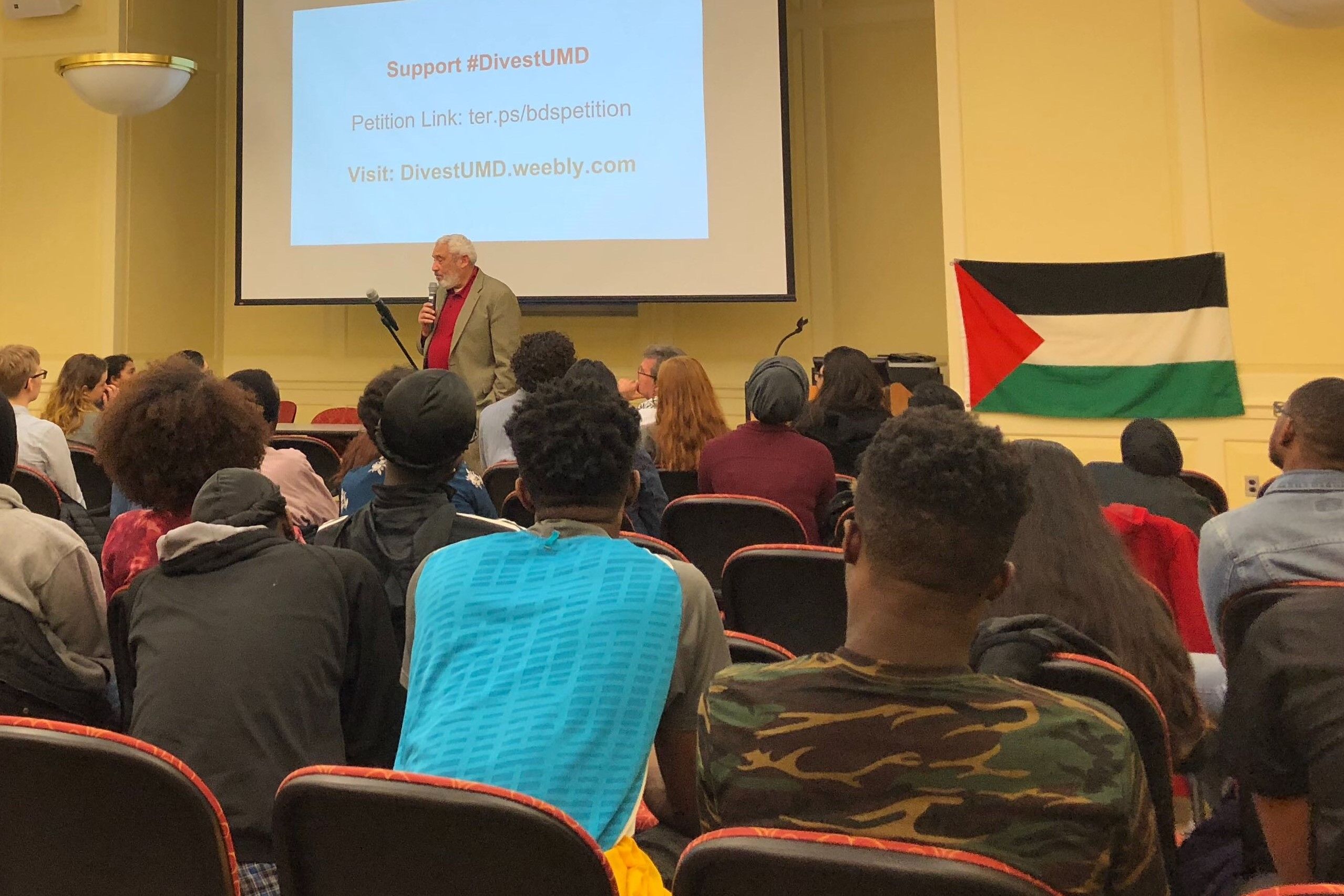By Nick Albicocco
For The Diamondback
A young Palestinian boy playing soccer in the street was shot by an Israeli sniper.
Tamir Rice, a 12-year-old boy from Cleveland, was fatally shot in a park in 2014 after police mistook the toy gun he was holding for the real thing.
This is one of many parallels that prominent Washington, D.C. pastor and activist Rev. Graylan Hagler drew between what he said was the oppression of black people in the United States and Palestinians by neighboring Israel.
Hagler, a pastor at Plymouth Congregational United Church of Christ in Northeast Washington, D.C., pointed to the clashes between activists and local police in Ferguson, Missouri, following the shooting of black teenager Michael Brown and the years-long conflict between Israelis and Palestinians as an example of how oppression can be universal.
“The tear gas that was used in Ferguson is also the tear gas that’s used in the occupied territories of Palestine,” Hagler said Wednesday to the packed room at McKeldin Library.
Hagler’s words were part of a discussion hosted by the University of Maryland chapter of Students for Justice in Palestine, a student group that advocates for Palestinian rights both in the United States and abroad.
“Whenever something happens to a brown person or a black person by the dominant culture, in other words, a racist act, somehow we got to prove that it is a racist act,” Hagler said.
The event, titled “From Ferguson to Palestine,” was co-sponsored by six other organizations — African Students Progressive Action Committee, Black Male Initiative, Muslim Alliance for Social Change, Organization of Arab Students, Political Latinxs United for Movement and Action in Society and the Prison Resistance Project.
[Read more: “An open dialogue”: Pro-Israel and pro-Palestine groups gather during Israel Fest]
A video displayed images of black men killed by police, and Palestinians killed by air strikes.
“It’s like seeing the actual faces instead of some person talking to you about it, seeing the faces, seeing the kids, seeing women, refugees on that screen,” said Shivam Shukla, a sophomore computer science and environmental science and policy major. “It’s really powerful. … It’s a real thing that’s occurring.”
Throughout the video, black people and Palestinians shared stories of discrimination. They held signs with messages of solidarity, such as, “Free all political prisoners” and repeated the phrase, “When I see them, I see us.”
The Baltimore-raised Hagler then highlighted groups around the world that also experience oppression.
“Oppression and systems of oppression are never changed, they’re just tweaked,” said Hagler, who has been a pastor for decades in cities such as Boston’s Roxbury neighborhood, Chicago and Washington, D.C.
Senior public health science major Lea Widemann said she was eager to hear Hagler speak about Palestine and its connection to Ferguson.
“I think one of the most important things is to dissolve the barriers that our oppressions were erected on,” Widemann said. “Even though we’re not Palestinians … this issue is inherently tied to our freedom and the same goes for the Black Lives Matter struggle here in the U.S.”
Sophomore public policy major Anthony Weems said one of the topics that most resonated with him was the inability for oppressed people to dictate their own narrative.
“I’ve heard it before but it didn’t stick to me that most oppressed peoples can’t actually control the way that they’re seen,” Weems said. “This affects coalition-building and their ability for upward mobility and political organization.”
Shukla, who helped organize the event, said the most important thing to remember is that student activism can have a real effect on change.
“Student voices really do have an impact on public policy [and] international relations, so it is our responsibility to take action,” Shukla said. “I think both movements and every movement for civil rights liberation is going to be growing together.”



